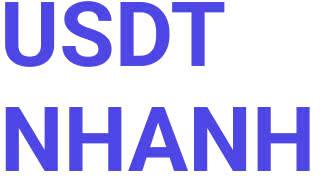The Rounding Bottom
The Rounding Bottom is a long-term reversal pattern that is best suited for weekly charts. It is also referred to as a saucer bottom, and represents a long consolidation period that turns from a bearish bias to a bullish bias.
Prior Trend: In order to be a reversal pattern, there must be a prior trend to reverse. Ideally, the low of a rounding bottom will mark a new low or reaction low. In practice, there are occasions when the low is recorded many months earlier and the security trades flat before forming the pattern. When the rounding bottom does finally form, its low may not be the lowest low of the last few months.
Decline: The first portion of the rounding bottom is the decline that leads to the low of the pattern. This decline can take on different forms: some are quite jagged with a number of reaction highs and lows, while others trade lower in a more linear fashion.
Low: The low of the rounding bottom can resemble a “V” bottom, but should not be too sharp and should take a few weeks to form. Because prices are in a long-term decline, the possibility of a selling climax exists that could create a lower spike.
Advance: The advance off of the lows forms the right half of the pattern and should take about the same amount of time as the prior decline. If the advance is too sharp, then the validity of a rounding bottom may be in question.
Breakout: Bullish confirmation comes when the pattern breaks above the reaction high that marked the beginning of the decline at the start of the pattern. As with most resistance breakouts, this level can become support. However, rounding bottoms represent long-term reversal and this new support level may not be that significant.
Volume: In an ideal pattern, volume levels will track the shape of the rounding bottom: high at the beginning of the decline, low at the end of the decline and rising during the advance. Volume levels are not too important on the decline, but there should be an increase in volume on the advance and preferably on the breakout.
A rounding bottom could be thought of as a head and shoulders bottom without readily identifiable shoulders. The head represents the low and is fairly central to the pattern. The volume levels throughout the pattern mimic those of the head and shoulders bottom; confirmation comes with a resistance breakout. While symmetry is preferable on the rounding bottom, the left and right side do not have to be equal in time or slope. The important thing is to capture the essence of the pattern.
free forex signals presents special offer
open trading account with one of the best forex brokers and GET FREE forex Signals via SMS, Email and WhatsApp
SIGN UP FOR A FREE TRIAL To Access FREE Forex Signals in the Members Area START FREE 30 DAYS TRIAL on https://www.freeforex-signals.com/
The Rounding Bottom is a long-term reversal pattern that is best suited for weekly charts. It is also referred to as a saucer bottom, and represents a long consolidation period that turns from a bearish bias to a bullish bias.
Prior Trend: In order to be a reversal pattern, there must be a prior trend to reverse. Ideally, the low of a rounding bottom will mark a new low or reaction low. In practice, there are occasions when the low is recorded many months earlier and the security trades flat before forming the pattern. When the rounding bottom does finally form, its low may not be the lowest low of the last few months.
Decline: The first portion of the rounding bottom is the decline that leads to the low of the pattern. This decline can take on different forms: some are quite jagged with a number of reaction highs and lows, while others trade lower in a more linear fashion.
Low: The low of the rounding bottom can resemble a “V” bottom, but should not be too sharp and should take a few weeks to form. Because prices are in a long-term decline, the possibility of a selling climax exists that could create a lower spike.
Advance: The advance off of the lows forms the right half of the pattern and should take about the same amount of time as the prior decline. If the advance is too sharp, then the validity of a rounding bottom may be in question.
Breakout: Bullish confirmation comes when the pattern breaks above the reaction high that marked the beginning of the decline at the start of the pattern. As with most resistance breakouts, this level can become support. However, rounding bottoms represent long-term reversal and this new support level may not be that significant.
Volume: In an ideal pattern, volume levels will track the shape of the rounding bottom: high at the beginning of the decline, low at the end of the decline and rising during the advance. Volume levels are not too important on the decline, but there should be an increase in volume on the advance and preferably on the breakout.
A rounding bottom could be thought of as a head and shoulders bottom without readily identifiable shoulders. The head represents the low and is fairly central to the pattern. The volume levels throughout the pattern mimic those of the head and shoulders bottom; confirmation comes with a resistance breakout. While symmetry is preferable on the rounding bottom, the left and right side do not have to be equal in time or slope. The important thing is to capture the essence of the pattern.
free forex signals presents special offer
open trading account with one of the best forex brokers and GET FREE forex Signals via SMS, Email and WhatsApp
SIGN UP FOR A FREE TRIAL To Access FREE Forex Signals in the Members Area START FREE 30 DAYS TRIAL on https://www.freeforex-signals.com/






















